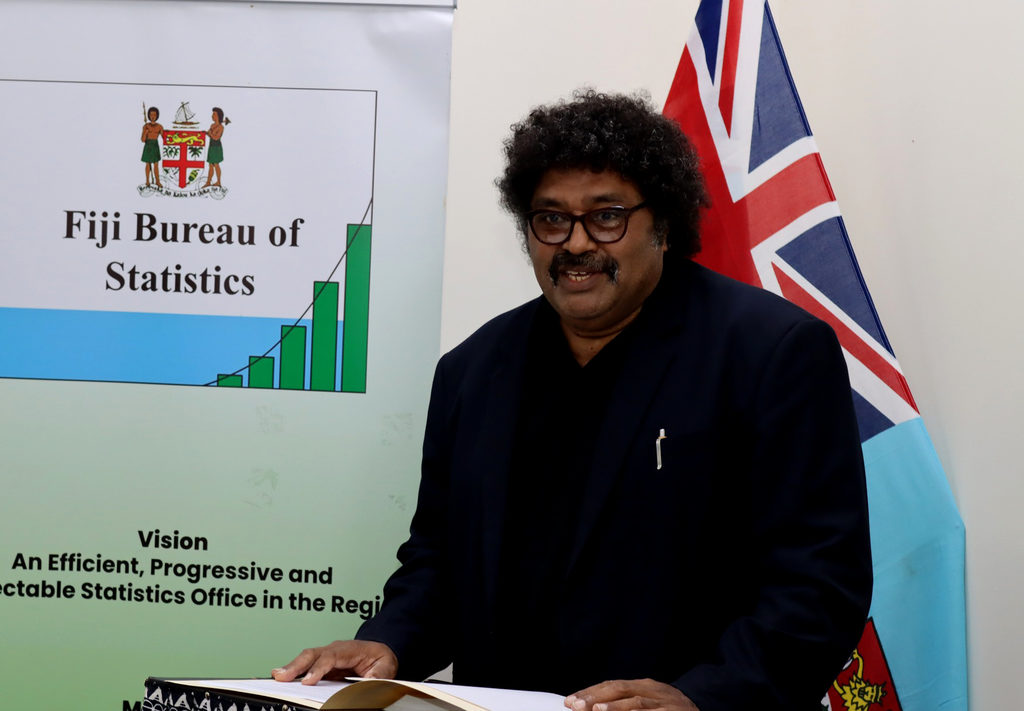FIJI’S current economic data (including GDP, exports, and revenue) does not yet account for the true value or contribution of nature and ecosystems.
This was revealed by Deputy chief statistician Apisalome Tamani, who said the country’s economy depended heavily on natural resources, yet their full contribution was not reflected in national statistics.
“At least 20 per cent of Fiji’s economic activity, over $2billion in gross revenue, depends directly on food and services from our ecosystems,” Mr Tamani said.
He noted that key sectors such as agriculture and tourism relied significantly on healthy natural systems.
Agriculture, which contributes around 8 per cent of Fiji’s GDP, depends on fertile soils, pollination, and rainfall.
Meanwhile, tourism accounting for nearly 40 per cent of GDP when indirect effects are included, depending on the health and beauty of reefs, forests, and beaches.
“These nature-economy linkages are not yet fully captured in our national statistics.
“Without them, we risk undervaluing our natural capital in policy and investment decisions.”
Mr Tamani said the Fiji Bureau of Statistics, with support from development partners, was working to strengthen the country’s data systems to reflect the role of ecosystems in the economy.
Among the initiatives under way are the Fiji National Data Portal, designed to improve data accessibility and transparency, and amendments to the Statistical Act, which enhance the Bureau’s authority to coordinate and disseminate official data across government.
Fiji has also advanced in Ocean Accounting, hosting national workshops and joining the Global Pledge to Advance Ocean Accounts by 2030.
These efforts align with the National Digital Strategy 2025–2030, which aims to build an integrated and inclusive national data system.
Mr Tamani said collaboration across ministries, research institutions, and communities was essential to ensure that Fiji’s data ecosystem was both comprehensive and forward-looking.
Data gaps worrying
FORTY-TWO per cent of Fiji’s Sustainable Development Goal (SDG) indicators could not be tracked because of data gaps in the country.
This means that for almost half of the global goals, Fiji does not have enough reliable data to measure whether it is making progress or not.
Deputy chief statistician Apisalome Tamani highlighted the issue during a national discussion on strengthening Fiji’s data systems, saying accurate, coordinated data is vital for good governance and informed decision-making.
“From the Bureau of Statistics’ perspective, data are not just technical outputs,” Mr Tamani said.
“They are the foundation of accountability, transparency, and good governance. Yet, our current data landscape remains fragmented.”
He said many government agencies and organisations collect important information, often through donor-supported projects.
But these data sets are not always connected, shared, or accessible for national planning.
“Available environmental and social datasets exist, but they are often stored in isolation, limiting their use for national planning.”
Mr Tamani also noted that regional and community-based knowledge is often underrepresented, even though such insights are critical to understanding Fiji’s environment and society.
He stressed the 42 per cent data gap poses a major challenge for tracking Fiji’s progress toward the SDGs.



